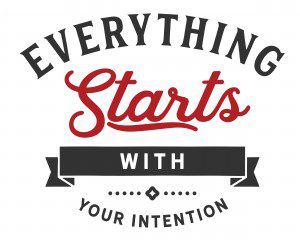
Are you aware of how your intentions drive your behavior? Are you aware of the impact your behavior is having on others? The following example shows you how intentions play out in behavior and the impact that that behavior can have on others’ perceptions of you.
John sat across the table from me. I was interviewing him to gather information to customize the interpersonal communication program for company directors in which he was to participate. He looked perplexed. Rubbing his forehead, he sighed, “Maybe you can tell me why I’m often told by others at staff meetings that I look disinterested in what’s going on.” Then he added, “And why people accuse me of being negative when I’m only trying to point out the potential hazards involved in moving forward on a project without proper investigation of the problems under discussion.”
“Are you acting disinterested? Do you sound negative?” I asked.
“No,” he said. “It’s just that some people at those meetings are long-winded. They blow a lot of hot air without substantial evidence to support their opinions. It takes them forever to say nothing. I’m so agitated by the time I finally get a word in edgewise, I probably sound negative. But I’m not. They just don’t realize that my intentions are positive. I’m only trying to make sure that the job is done right. Why can’t they see that my intentions are for the good of the company? You’d think I was the enemy.”
John was both hurt and baffled by others’ reactions to him. His intentions were positive, and yet no one else seemed to recognize it.This gave rise to feelings of frustration and a desire to withdraw from active participation at meetings. John was soon to discover something that would change his life and his power to influence: positive intentions, acknowledged and validated, put you in a position to influence.
If we could put human behavior under a magnifying glass, we’d see the intentions that direct people to act as they do. Every behavior has a purpose, or a positive intent,that the behavior is trying to achieve, and those goals can change, depending upon the circumstances.
Intentions drive behaviors.Being aware of your own positive intentions and those of others can eliminate unnecessary frustration that often leads to conflict and hurt feelings, but only if you recognize and express those intentions.John’s intentions may have been in the best interest of his company, but he didn’t take the time to recognize and express the validity of other people’s goals. Had he done so, not only would his behavior have been more productive (active participation versus withdrawal), but he’d have been in a more powerful position to influence.
If John has simply said, “I understand that your intent is to get product out the door; we cannot keep our customers waiting if we want to keep our customers. I can appreciate that. My intent is to make sure that we get to the bottom of what is causing our product issues so that our customers are not unhappy once they receive the product.” He could then have presented his evidence of the number of customer complaints, lost customers, or the amount of returned product. A valid discussion of the bigger picture would have been possible once all understood that everyone was communicating from positive intentions. Problem solving instead of conflict would have been possible.
Ian Percy wrote: “We judge others by their behavior. We judge ourselves by our intentions.”Understanding and expressing our own intentions and those of others, puts us in a more positive light, better able to influence.Want a clearer understanding of the 4 major intentions that drive behavior and the behaviors (both positive and negative) that indicate each intent? Click here.



